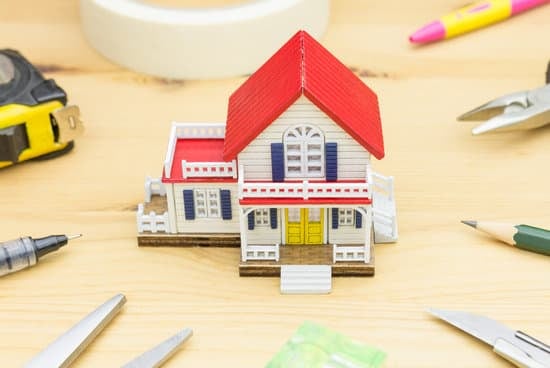Are you wondering what home improvements increase basis in order to make informed decisions about enhancing your property’s value? Understanding the concept of basis and how it relates to home improvements is crucial for homeowners looking to increase the value of their homes. In this article, we will break down the definition of basis and explore the significance of increasing it through various home improvement projects.
Basis refers to the amount of money invested in a property, including the initial purchase price and any additional capital improvements made over time. Increasing the basis of a home is important for homeowners because it can have significant financial implications when selling or calculating taxes. By making strategic home improvements, homeowners can not only enhance their living space but also increase the basis of their property, ultimately boosting its market value.
Throughout this article, we will delve into different aspects of increasing a home’s basis through various types of improvements. From exterior enhancements like landscaping and roofing to interior renovations such as kitchen remodeling and energy-efficient upgrades like solar panels, understanding how different projects impact a property’s basis is essential for homeowners looking to maximize their investment.
Whether you are planning to sell your home in the future or simply want to increase its overall value, gaining insights into what home improvements increase basis will help you make informed decisions about enhancing your property.
Understanding Basis
Basis is a term commonly used in real estate and home ownership, referring to the original cost of a property for tax purposes. When it comes to increasing the basis of a home, it’s important for homeowners to understand what this means and how it can benefit them in the long run. Essentially, increasing the basis of a home can result in lower taxes when the property is eventually sold.
In real estate, the basis refers to the total amount of money invested in a property, including the purchase price and any additional costs incurred for improvements or renovations. This is crucial for homeowners as it directly impacts their tax liability when they sell their property. By increasing the basis through home improvements, homeowners can potentially reduce any capital gains taxes they may owe when they sell their home.
The significance of understanding basis lies in its potential financial benefits for homeowners. By making strategic home improvements that increase basis, individuals can ultimately minimize their tax burden when they decide to sell their property. Knowing what home improvements increase basis is essential for making informed decisions about renovations and upgrades that not only enhance living spaces but also add tangible value to the property.
| Home Improvement | Impact on Basis |
|---|---|
| Landscaping | Increases curb appeal and overall property value. |
| Kitchen Remodeling | Adds significant value to the home and increases basis. |
| Solar Panels | Boosts energy efficiency and increases basis through renewable energy upgrades. |
Exterior Improvements
Exterior home improvements play a crucial role in increasing the basis of a home. When homeowners invest in enhancing the exterior of their property, they not only improve its curb appeal but also raise its overall value. Here are some exterior improvements that can increase the basis of a home:
- Landscaping: Well-maintained and visually appealing landscaping can significantly enhance the basis of a home. This includes adding features such as a well-manicured lawn, trees and shrubs, flower beds, and hardscaping elements like pathways and outdoor living areas.
- Roofing: A new roof or roof repairs can have a positive impact on a home’s basis. A sturdy, well-maintained roof adds to the structural integrity and longevity of the property, which is reflected in its increased basis.
- Siding: Upgrading or replacing siding is another effective way to boost the basis of a home. New siding not only improves the aesthetics of the property but also provides better insulation and protection against elements, contributing to an increase in basis.
These exterior improvements not only enhance the visual appeal of a home but also contribute to its functionality and durability, thereby elevating its overall value and basis. Homeowners should carefully consider these options when planning for enhancements to their property.
Interior Improvements
When it comes to increasing the basis of a home, interior improvements play a significant role in adding value to the property. From kitchen and bathroom remodeling to flooring upgrades and HVAC installations, these renovations can have a direct impact on the overall basis of a home.
Kitchen and Bathroom Remodeling
Renovating the kitchen and bathrooms are some of the most popular interior improvements that homeowners invest in to increase the basis of their homes. Upgrading appliances, installing new countertops, and improving the overall layout of these spaces can significantly enhance the value of a property.
Flooring Upgrades
Upgrading flooring is another interior improvement that can increase the basis of a home. Replacing old carpets with hardwood floors or installing high-quality tiles not only improves the aesthetic appeal of a home but also adds to its overall value.
HVAC Installations
Installing a new HVAC system can also contribute to increasing the basis of a home. Energy-efficient heating and cooling systems not only improve comfort and energy savings but also add tangible value to the property.
Energy-Efficient Upgrades
When it comes to increasing the basis of a home, energy-efficient upgrades play a significant role in not only improving the property’s value but also in reducing long-term operating costs. Energy-efficient improvements such as solar panels, insulation, and energy-efficient windows are increasingly popular among homeowners for their dual benefit of sustainability and financial savings.
Solar Panels
Solar panels are a great way to increase the basis of a home while also reducing energy bills. Not only do solar panels make a property more attractive to potential buyers, but they also provide an eco-friendly source of electricity.
Depending on the location and size of the solar panel system, the increase in basis can be substantial. It is essential for homeowners to consider the upfront cost of installation against its long-term impact on their property’s value.
Insulation
Proper insulation not only improves the energy efficiency of a home but also increases its basis. Whether it’s insulating the attic, walls, or floors, having good insulation can lead to lower utility bills and higher property value. Moreover, updated insulation is an appealing feature for prospective buyers as it demonstrates that the home is well-maintained and equipped for energy conservation.
Energy-Efficient Windows
Replacing old windows with energy-efficient ones can significantly enhance a home’s basis. Energy-efficient windows not only improve insulation and reduce noise but also add to the overall aesthetic appeal of the property. Homeowners should consider the return on investment when replacing windows, as this upgrade can have both immediate benefits in decreased utility costs and long-term benefits in increased property value.
Investing in these energy-efficient upgrades not only enhances a homeowner’s quality of life but also increases the basis of their property. Understanding how each improvement impacts basis is vital for making informed decisions about home improvements that will yield both present and future benefits.
Structural Enhancements
In addition to increasing the basis of the property, structural enhancements can also enhance the overall appeal and functionality of the home. A newly added room can serve as an extra bedroom or home office, adding practical value to the property.
Basement finishing can create additional living space for recreational areas or guest quarters, further increasing the desirability and market value of the home. Ultimately, these improvements not only benefit homeowners financially by increasing their home’s basis but also contribute to their overall satisfaction with their living space.
It is important for homeowners to carefully consider structural enhancements and consult with professionals before undertaking such projects. Due diligence in planning and executing these improvements is crucial in ensuring that they effectively increase the basis of the property while complying with regulations and building codes. By making informed decisions about structural enhancements, homeowners can maximize both the financial and practical benefits of these improvements.
| Structural Enhancements | Impact on Basis |
|---|---|
| Foundation Repairs | Establishes solid foundation and increases basis |
| Adding a New Room | Increases square footage and overall worth of home |
| Basement Finishing | Creates additional living space and boosts market value |
Regulatory Considerations
When it comes to home improvements, homeowners often focus on the aesthetic and functional benefits that these projects provide. However, it’s also crucial to consider the impact of these improvements on the basis of your property and how they may affect your tax obligations. Understanding the tax regulations and guidelines related to home improvements and basis increase is essential for making informed decisions as a homeowner.
Here are some key regulatory considerations to keep in mind when assessing the impact of home improvements on your property’s basis:
- Consult with a Tax Professional: Before embarking on any major home improvement project, it’s advisable to seek guidance from a qualified tax professional. They can provide insights into how specific improvements may affect your property’s basis and potential tax implications.
- Research Local Regulations: Different state and local regulations may have varying rules regarding the treatment of home improvements for tax purposes. Familiarizing yourself with these regulations can help you make informed decisions about which projects to pursue.
- Keep Detailed Records: Maintaining thorough documentation of all home improvement expenses is essential for accurately calculating the increase in basis. This includes invoices, receipts, contractor agreements, and any relevant permits obtained for the work.
By staying informed about tax regulations and guidelines related to home improvements, homeowners can ensure that they are maximizing their property’s basis while remaining compliant with relevant laws. This knowledge can ultimately contribute to making strategic decisions that benefit both their property value and financial responsibilities.
Taking into account these regulatory considerations will allow homeowners to approach their home improvement projects with a clear understanding of how they will impact the basis of their property. Whether it’s through exterior landscaping or structural enhancements, being aware of the tax implications ensures that homeowners can make sound financial decisions that align with their long-term goals.
Calculating Basis
When homeowners invest in home improvements, they have the potential to increase the basis of their property, which can ultimately have significant financial benefits. But how exactly can homeowners calculate the increase in basis after making these improvements? Understanding this process is crucial for making informed decisions about which home improvements to prioritize.
One way to calculate the increase in basis after making home improvements is to keep track of all expenses related to the improvement project. This includes not only the direct costs of materials and labor but also any additional expenses such as permit fees, design fees, and inspection costs. These costs can be added to the original purchase price of the property, increasing its basis.
Another factor to consider when calculating the increase in basis is the longevity of the improvement. Certain home improvements, such as a new roof or HVAC system, can be categorized as capital expenditures because they provide long-term benefits. On the other hand, smaller upgrades or repairs may not have as significant an impact on increasing a home’s basis.
It’s important for homeowners to consult with a tax professional or accountant when calculating the increase in basis after making home improvements. Tax regulations and guidelines related to basis calculations can be complex, and seeking professional guidance can ensure that homeowners accurately account for all qualifying expenses when determining their property’s basis. By understanding how to properly calculate the increase in basis, homeowners can make strategic decisions about which home improvements will yield the greatest financial return.
Conclusion
In conclusion, it is evident that increasing the basis of a property through home improvements can have significant financial implications for homeowners. Understanding the concept of basis and its significance in real estate and home ownership is crucial in making informed decisions about which improvements to prioritize.
Exterior improvements such as landscaping, roofing, and siding can enhance a home’s curb appeal while also increasing its basis. Similarly, interior renovations like kitchen and bathroom remodeling, flooring upgrades, and HVAC installations can add value to a property and contribute to basis increase.
Furthermore, energy-efficient upgrades such as solar panels, insulation, and energy-efficient windows not only make a home more sustainable but also elevate its basis. Structural enhancements like foundation repairs, adding a new room, or basement finishing can further contribute to an increase in basis. It is important for homeowners to be aware of tax regulations and guidelines related to home improvements as they can impact the calculation of basis increase.
Ultimately, homeowners should carefully consider their options when planning home improvements with the goal of increasing basis in mind. By working with qualified professionals and ensuring compliance with relevant regulations, they can make strategic decisions that benefit their property’s long-term value. Making informed choices about which home improvements increase basis will ultimately lead to a more valuable and financially sound investment in the long run.
Frequently Asked Questions
What Adds to the Basis of a Home?
The basis of a home includes the original purchase price, closing costs, and any fees associated with the purchase. It also encompasses the value of any permanent fixtures or improvements made to the property.
What Will Increase the Basis of Property?
Several factors can increase the basis of a property, such as making permanent improvements, renovating or remodeling, adding on an addition, and restoring the property after a casualty loss. These expenses add to the overall cost basis of the property.
What Improvements Can Be Added to Cost Basis of Rental Property?
Improvements that can be added to the cost basis of rental property include significant renovations like adding a new roof, installing central air conditioning or heating systems, improving landscaping, and making structural enhancements. These improvements can increase the value of the rental property and therefore its tax basis.

I’m thrilled to have you here as a part of the Remodeling Top community. This is where my journey as an architect and remodeling enthusiast intersects with your passion for transforming houses into dream homes.





